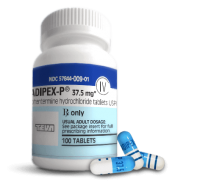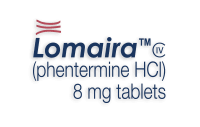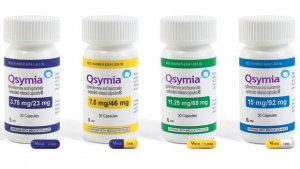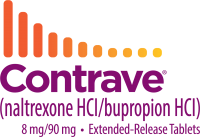Secrets to Finding the Best Weight Loss Pills for You

There are no “best weight loss pills” just like there are no “best golf clubs”, “best purses”, or “best automobiles”. Every individual has different reasons for their weight gain and different responses to different medications. Each medication works on different areas of the brain to control appetite and cravings. However, there are many factors to guide you and your physician when deciding on the best weight loss pills for you.
Importance of FDA Approval for Weight Loss Pills
Currently 2/3 of adults and 1/3 of children in the US are overweight or obese. Therefore, there is great pressure on the healthcare community—physicians and pharmaceutical companies alike—to develop new effective and safe treatments. The heart of all FDA medical product evaluation decisions is a judgment about whether a new product’s benefits to users will outweigh its risks. No effective product is totally risk or side effect free, so these judgments are important.
The FDA reviews the results of laboratory, animal, and human clinical testing done by drug companies. They use this information to determine if the product the company wants to bring to market is safe and effective. The average new medication takes more than 10 years and 10,000 or more test subjects to obtain FDA approval. Almost all medications become DEA controlled substances once the FDA approves them.
Classification of Diet Medications
The FDA has tightly regulated the drug marketplace for weight loss medications. The vast majority of medications are not only prescription drugs but also DEA controlled substances. The DEA classifies these drugs into five categories, or schedules: I, II, III, IV and V. From the DEA:
Drugs, substances, and certain chemicals used to make drugs are classified into five (5) distinct categories or schedules depending upon the drug’s acceptable medical use and the drug’s abuse or dependency potential. The abuse rate is a determinate factor in the scheduling of the drug; for example, Schedule I drugs have a high potential for abuse and the potential to create severe psychological and/or physical dependence. As the drug schedule changes– Schedule II, Schedule III, etc., so does the abuse potential– Schedule V drugs represents the least potential for abuse.
The diet medications Qsymia, Belviq, phentermine (including Lomaira), diethylpropion, and phendimetrazine are Schedule IV drugs. This means there is little to no abuse or dependency potential. A cough medicine with small amounts of codeine would fall under Schedule V. Narcotic pain medications such as oxycodone and fentanyl, as well as amphetamine-based ADHD drugs such as Adderall and Ritalin are in Schedule II.
- There are NO FDA approved prescription weight loss medications in over-the-counter (OTC) drug or supplement groups.
- There is only a single approved nonprescription medication for weight loss. It is called is Alli (Orlistat). Unfortunately, it is not very effective. Xenical is the prescription strength version of Orlistat.
- Xenical and Contrave are the only FDA-approved prescription weight loss medications that are not DEA controlled drugs.
Best Weight Loss Pills: Do I Qualify for Medication?
Weight loss pills are all medications requiring a prescription from a physician. Weight loss drugs may be an option for you if:
- You are obese (BMI of 30 or higher)
- You are overweight (BMI of 27 or higher) with serious health risks, such as high blood pressure, type 2 diabetes, or high cholesterol, and cannot control your weight with diet and exercise alone.
- Other medical conditions are present, such as sleep apnea, severe arthritis, and even depression.
Try our simple BMI calculator to discover your Body Mass Index
These BMI thresholds reflect a recommendation that individuals be treated when their body weight was at least 20% above “desirable weight” based on Metropolitan Life Insurance data from 1983. A BMI of ≈27 for men and women corresponded to being 20% above desirable weight and was associated with increased risks for hypertension (high blood pressure), hypercholesterolemia (high cholesterol), and diabetes mellitus, as well as premature death.
How to Determine Best Weight Loss Pills for You
Many factors go into the process of deciding which are the best weight loss pills for you. Assuming your weight and/or medical problems indicate the possible need for these medications, your medical history is the first place to start. This includes current medical problems, medications, past history of medical problems, and previous reactions to medications. Here are the reasons we can exclude one or more of these medications:
1. Medical history that excludes use of prescription weight loss drugs:
Conditions include uncontrolled hypertension, heart failure, history of cardiovascular disease (heart attacks, TIA’s, strokes), terminal cancer, hyperthyroidism, and some cases of glaucoma.
2. Concurrent medications that exclude all 3 drugs (Qsymia, Belviq, and Contrave):
MAO inhibitors, seizure medications, a history of allergy to any of these medications, or you are currently taking similar medication or one of the two components in Qsymia or Contrave.
3. Concurrent medications that exclude a single drug (Belviq, Qsymia or Contrave):
- Belviq Contraindications:
- Depression medications such as lithium and buproprion, and certain cough medications
- Erectile dysfunction medications
- Medications for migraine headaches such as almotriptan (Axert) and eletriptan (Relpax)
- Medications for pain, including vicodin, hydrocodone, oxycodone, and other opioids
- Qsymia Contraindications: Dilantin
- Contrave Contraindications: SSRIs, methadone, and opioid pain medication
4. Past History of Successful Weight Loss Attempts with a Weight Loss Medication, or Unpleasant Side Effects
Your past attempts at weight loss with medications, successful or not, are often ignored when deciding the best weight loss pills for you. Also frequently overlooked are unpleasant or intolerable side effects when taking components of some of these new medications for other medical problems. Older weight loss medications (diethylpropion and phentermine) have been on the market for more than 35 years, and the components of Qsymia and Contrave for almost equally as long. Your past responses, both positive and negative, can help you decide what new or old medication might be of assistance today.
Successful weight loss in the past with phentermine or diethylproprion might suggest trying these medications again at different dosages. It may also suggest Qsymia as a possible alternative. If you have been treated with buproprion (Wellbutrin) for anxiety or depression and noticed weight loss, you might consider Contrave. If you responded well to Zyban (a version of buproprion) and stopped smoking, you might also consider Contrave.
On the other hand, if you have experienced unpleasant side effects when taking topiramate or phentermine (Qsymia components), or buproprion or naltrexone (Contrave components), then trying Qsymia, Contrave, or even the phentermine alone would be poor choices. Belviq might be the best choice in that case.
5. Your Age and Gender Often Help Decide the Best Weight Loss Pills:
Overweight and obese younger people (teens to mid-twenties) of both sexes and men who require weight loss medications but have never taken any of the older weight loss medications seem to do better when they take a single of the lowest dose medications in the morning. Older teens and men respond well to low dose phentermine or Tenuate, especially when the dosing is early in the morning and only once a day.
6. Your Tolerance (or Intolerance) for Side Effects Helps Determine Your Best Weight Loss Pills:
All of these medications have some side effects. Most are transitory and mild. However, everyone responds differently and side effects are unpredictable. In addition, everyone has a different tolerance for side effects. In general, Qsymia has the most side effects and at the same time is probably the most effective. Contrave has fewer side effects. Side effects fall into several groups:
- Insomnia, stimulation, anxiety: Typical of the older drugs like phentermine. Less frequent with diethylpropion. Not a problem with Lomaira 8mg.
- Somnolence and fatigue: Not seen in the older weight loss drugs. Most commonly experienced with Qsymia
- Tingling of fingers, memory problems: Seen only Qsymia because of the topiramate component.
- Gastrointestinal issues, including nausea and (rarely) vomiting: Only in Contrave due to the naltrexone component.
- Headache: Possible with all of the medications. Usually transient and tolerable. Responds to extra strength Tylenol.
7. Your Eating Patterns Help Determine the Best Weight Loss Pills for You:
You may be overeating for many reasons. Often, trying to analyze what, when, and how much you eat can help you decide on the best treatment. Here are several types of eating patterns and the medication that might be the best to consider:
- Compulsive Over-eater
A compulsive over eater is an individual who compulsively eats but does not purge and usually becomes overweight. The over eater may eat three meals a day plus frequent snacks. He or she thinks of food all day long. This person may overeat continually throughout the day rather than consume large amounts of food during intermittent binges. They tend to get stuck on the thought of food and feel compulsively driven. He or she tends to be a night time eater and typically claims to have no control over food. Often they worry and have difficulty falling asleep. This behavior has been associated with low levels of serotonin. Caffeine and older diet pills often make them anxious. The best weight loss pills for people in this category is often Qsymia (as long as they can tolerate the phentermine component) or Belviq. - Impulsive Overeating
An impulsive eater has poor impulse control and reaches for food often when he or she is not hungry and without thinking. They do well when they see healthy foods but have a hard time controlling urges when exposed to unhealthy foods. This is often seen in untreated ADHD. He or she has great difficulty adhering to a diet plan. This person will reach for the last piece of cold pizza slowly because it’s in front of them. Impulsive eaters usually reach for unhealthy food. The impulsive eating can occur day or night and is often unpredictable. The best weight loss pills for people in this category can be phentermine, diethylproprion, or Qsymia. A serotonin drug like Belviq may not be as effective. - Sad, Emotional, Anxious, or Depressed Overeating
Over-eaters with these emotional problems often overeat to calm down because they are depressed or sad. They often have depression and low self esteem. They will have feelings of negativity and hopelessness. The best weight loss pills for people in this category is often Contrave because of the effect of buproprion on depression. Belviq might also help when there are serious portion control problems as well. Medications working on serotonin in the hypothalmus of the brain seem better for this problem. - Overeating is Associated with High Alcohol Consumption
Over eaters that are drinking 2 or more alcoholic drinks daily or almost daily can do very well with Contrave. This is especially true if there are elements of compulsive behavior and depression, and if the alcohol triggers increased appetite and lowering of inhibitions. The centers in the hypothalmus that control alcohol and food (especially carb) cravings are very close together.
Differences Among Weight Loss Medications
| Belviq | Qsymia | Contrave | |
|---|---|---|---|
| Medication | Lorcaserin | Phentermine and Topiramatee | Naltrexone and Bupropion |
| Action | Increases serotonin in the appetite center of the brain | Increases multiple chemicals throughout the brain to reduce hunger and cravings, and produce fullness | Increases impulses from PMOC neurons to reduce appetite |
| % of Subjects losing > 5% Body Weight | 47% | 66% | 66% |
| Dosage | 1 tablet twice a day | 4 dosages increasing over 3 months – 1 capsule per day | 2 tablets twice a day |
| Time to Achieve Effective Dose | 5-7 days | 10-14 days | 3-4 weeks for full effect |
| Side Effects (see individual drugs) | Minimal other than headache | Most due to side effects of topiramate and/or phentermine | Nausea, headache – self-limited, uncommon |
| Safety | Very safe | Pregnancy risk, otherwise safe | Very safe |
| Best For | Cannot tolerate side effects, less effective than others, must be patient, least able to titrate individual dose | Willing to tolerate side effects to get fastest weight loss. Easy to individualize dosage. Use limited by side effects. | People with depression, history of cravings, heavy alcohol consumption. Dosage can be individualized. |
| Special Precautions | Cannot take and SSRI’s (anti-depressants, anti-psychotics) | Do not take if pregnant, nursing, or planning to become pregnant. People with heart disease and seizures should not take this medication. | Cannot take with SSRI’s or opioids |
Want to Read More About These Medications?
Learn More With Our Medication Quick Reference
5.0 out of 5 stars – A Smart Look At Some New Medications
Contrave, Qsymia or Belviq: Which is the Best New Medication? Is loaded with insight and a clear to understand direction to the secrets behind unlocking permanent weight loss. I really liked how sharp and clear Doctor Lipman is throughout the entire book. You have to keep up with what he is going over, but you never feel lost.
I had been considering bypass surgery, but due to some health issues started to see a lot of weight loss. After a year, and sixty-five pounds in weight loss, I am always looking to be informed about all the key tools and aids that can help, I don’t want to gain any back. I hope everyone reads up on all the new FDA approved medications, there are thousands of people that need to improve their health and get their weight under control.
It was encouraging to see the breakthroughs and better understanding of the different receptors that produce fullness, a sense of being satisfied, and the inner workings of cravings and how to reduce and control them. I also really liked all that is covered with each medication regarding the side effects, really helps you zero in on what might have the best results. A wonderful read, information that you can start to take action from and move forward with a clear understanding”.
By D Roberts on May 19, 2015







